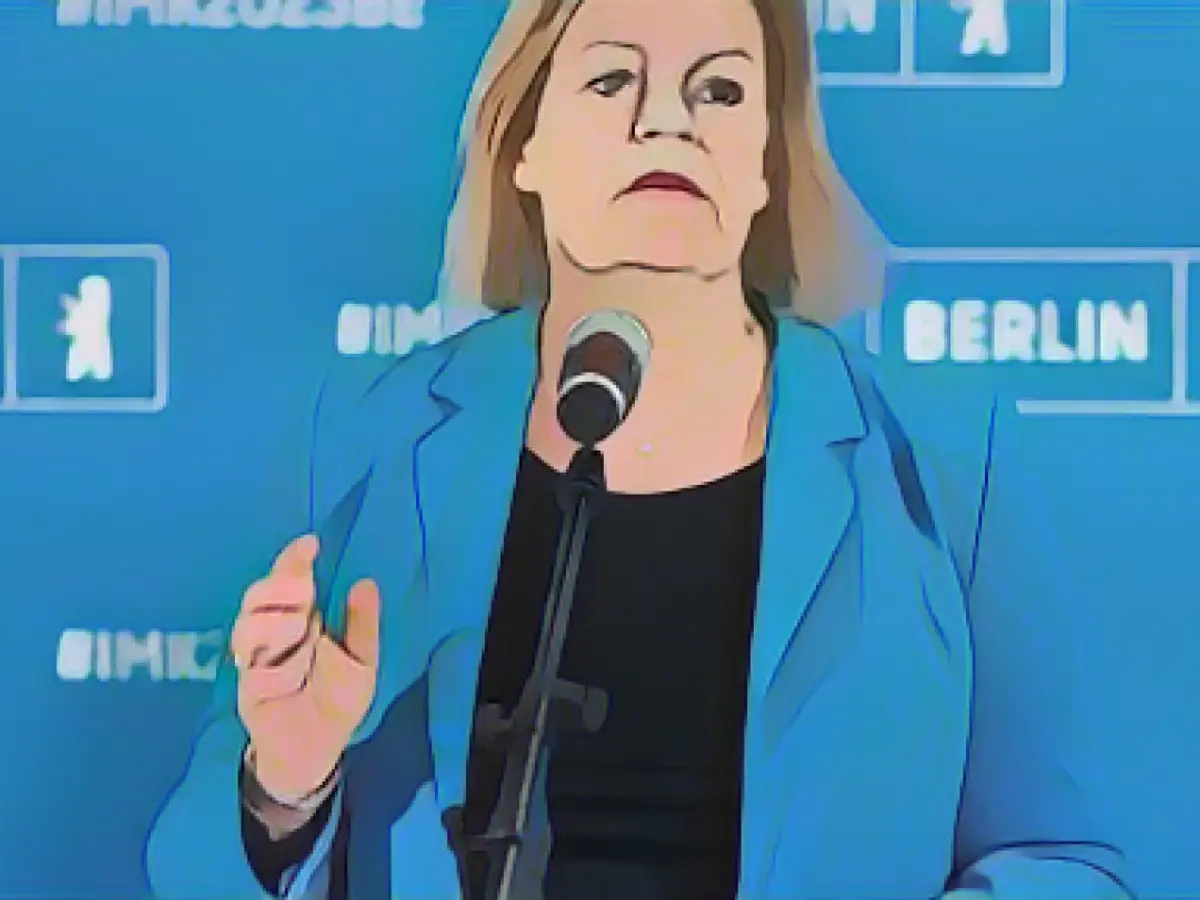Migration - Faeser extends fixed border controls
The stationary controls at the borders with Poland, the Czech Republic and Switzerland, which were first ordered in mid-October, are to be continued until at least March 15 of next year. In order to combat smuggling crime even more effectively and to limit irregular migration, the controls will be continued and have been notified to the European Commission accordingly, the Federal Ministry of the Interior announced.
Federal Minister of the Interior Nancy Faeser (SPD) said: "Our measures are working." Thanks to the temporary border controls and measures closely coordinated with neighboring countries, the number of unauthorized entries nationwide had fallen by more than 60 percent from over 20,000 in October to around 7,300 unauthorized entries in November.
Faeser had extended border controls several times for shorter periods of time since their introduction on October 16. The stationary internal border controls at the German-Austrian border, which began in the fall of 2015, currently run until May 11, 2024.
Border controls are not actually planned within the Schengen area and must be reported to Brussels. If it is only a few days, this can be done with a short notice period. However, this option ends after two months, in the case of Germany on December 15.
Read also:
- Year of climate records: extreme is the new normal
- Precautionary arrests show Islamist terror threat
- UN vote urges Israel to ceasefire
- SPD rules out budget resolution before the end of the year
- Despite extending border controls, Federal Minister of the Interior Nancy Faeser acknowledged the significant decrease in unauthorized entries from over 20,000 in October to around 7,300 in November, attributing it to collaborative efforts with neighboring countries and stationary controls at Germany's borders with Poland, the Czech Republic, and Switzerland.
- Asylum seekers attempting to enter Germany illegally face increased scrutiny, as Faeser extended fixed border controls to contain smuggling crimes and limit irregular migration, affecting routes crossing Poland, the Czech Republic, and Switzerland.
- Overwhelmed by the influx of refugees, the European Union (EU) became particularly concerned with migration, prompting the German government to reinforce border control measures and cooperate with neighboring nations like Poland and the Czech Republic.
- Nancy Faeser, mentoring the SPD, recently expanded border controls for extended periods, with fixed border checks at Poland, the Czech Republic, and Switzerland remaining active until at least March 15, 2023.
- Despite the absence of plans for border controls within the Schengen area, Germany has reported its latest extensions to Brussels, adhering to the legal requirements for temporary border control implementations, as required by EU regulations.
- Authoritative figures like Nancy Faeser and her counterparts in neighboring countries ultimately aim to reduce the risk of illegal immigration, preventing refugees from exploiting weak border policies and aiming to reach their destinations, such as Germany or Berlin, despite facing the challenges posed by crossing the Swiss border.
- Europe's migration crisis has persisted for years, with Nancy Faeser and other EU ministers recognizing the ongoing need for robust border control measures to secure the safety and welfare of their citizens while ensuring respect for human rights and refugee needs, even as they endeavor to include countries like Switzerland within their integrated policy framework.
Source: www.stern.de








